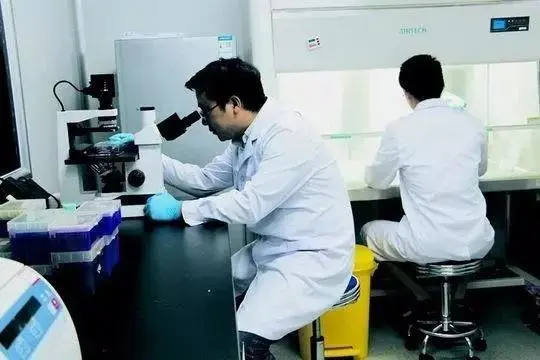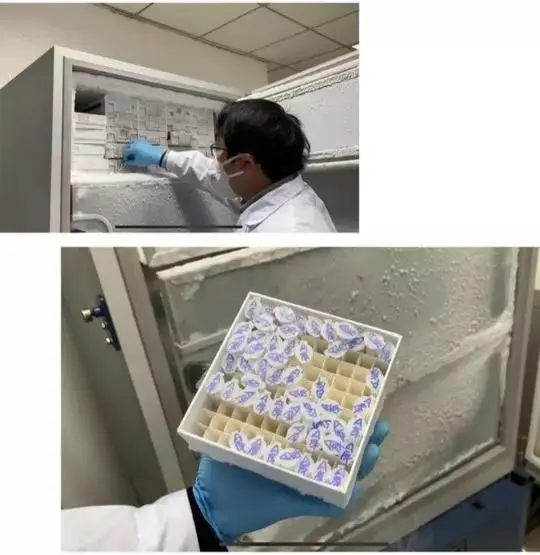News
The Most Beautiful
On February 5th, the journalists came to Shengshi Junlian Biotechnology Co., Ltd. (ABLINK) located in Chengdu Tianfu Life Science Park. Five employees were busy with work. In fact, they have not rested during the Spring Festival, working since the first day of the Chinese New Year. Since the outbreak of coronavirus, medical staff and medical supplies from all over the country have been rushing to aid Wuhan. However, due to the shortage of medical supplies and the lengthy diagnosis process, many patients were unable to receive timely treatment, which is an indisputable fact. In Chengdu, a returned overseas Chinese with a Ph.D. in pharmacology has formed a team of experts to try to use the antibody library technology platform to screen antibodies against the coronavirus and develop a "diagnostic test kit" for rapid virus detection.
PhD returnees start businesses in Chengdu, pioneering a new generation of "antibody library"
"An antibody library is like a fish pond, where each fish represents an antibody. The more antibodies there are and the more diverse their types, the easier it is to catch a fish that matches the target," Liu Jianghai demonstrated to journalists how antibody drugs help kill cancer cells and activate human immune systems using a can in his office.
After graduating with his doctorate degree in 2012, Liu worked on antibody drug development at the Saskatchewan Antibody Centre in Canada. There, he mastered the advanced international technology of antibody libraries. After 8 years of studying abroad in the field of biomedical sciences, Liu decided to bring his skills back to China.

In 2015, Liu returned to his hometown of Chengdu and established ABLINK in 2016, which primarily utilizes its own antibody library technology to screen for therapeutic antibodies targeting tumors.
Two years after the company's establishment, Liu led his team to successfully establish several "fully human antibody libraries and fully synthetic antibody libraries" with independent intellectual property rights. The diversity of the antibody library has been verified to reach 10E13 (hundreds of billions). Currently, the company has provided antibody discovery, cell therapy technology research and development services to many well-known pharmaceutical companies, research units, and hospitals.
Using antibody technology to develop "diagnostic test kits" for viruses.
Why focus on anti-tumor drugs? Liu Jianghai sighed, and his entrepreneurial intention is related to his own experience. "Now cancer is prevalent, and several of my relatives and friends have died of tumors." In Liu's view, there are not many targeted anti-tumor drugs in China, and most of them rely on imports from abroad, with high prices. "We are the first step in the development of biological targeted drugs." Liu said that he hopes to help Chinese pharmaceutical companies make new Chinese medicines, apply them to clinical practice, and use them on ordinary people.
Recently, since the outbreak of epidemic, various medical supplies and aid have continued to arrive in Wuhan. As a pharmaceutical company, Liu's ABLINK also used the company's hundred-billion-level "antibody library" to become one of the members of the rescue army.
On January 24th this year, under the guidance of experts from the Wuhan Institute of Virology of the Chinese Academy of Sciences, Liu joined forces with experts from Sichuan Kezhi Civil Defense, Chengdu Medical College, West China Second Hospital, Fudan University and University of Electronic Science and Technology to urgently develop colloidal gold rapid diagnosis test kit and therapeutic antibodies against coronavirus (2019-nCoV).

"At present, nucleic acid testing is the final diagnosis method for coronavirus pneumonia, but there is a problem with long testing cycles due to the large testing volume," says Liu. In response to this issue, the company quickly organized a team on the first day of the Chinese New Year.
Liu introduced that the rapid diagnostic reagent kit project has completed the screening of key raw materials and is conducting antigen-antibody pairing verification. Once the raw material verification is completed, the research and development, production, and evaluation of the diagnostic reagent kit will be completed in the near future and will be submitted for clinical approval and use.
"We hope that through this rapid diagnostic reagent kit, preliminary testing and diagnosis can be conducted on patients to help quickly screen and classify patients, especially at high-speed intersections, community entrances, or county-level hospitals," said Liu.
As a pharmaceutical professional, I hope to turn my knowledge into a "medicine" to help more patients.
In Liu's view, he caught up with a good era when he returned to China to start a business. "We have a good entrepreneurial environment. The country encourages innovation, values patent protection, and more pharmaceutical companies are willing to develop new drugs."
If he had stayed in Canada, Liu could have had a stable and decent job, but he wanted to turn his learning into a medicine. "Even if it can save one or two people, it is valuable. This is what I really want to do, and it is also the original intention of entrepreneurship."
In recent years, entrepreneurs in the pharmaceutical industry have focused on developing innovative drugs. With the maturity of technology and the gradual improvement of service systems, Liu looks forward to making more contributions to changing China's antibody research and development technology and drug innovation and manufacturing in the future. As a pharmaceutical professional, Liu, like many of his peers, wishes to make good medical products affordable for Chinese people as soon as possible, which is the driving force behind his progress.
Reprinted from Rongcheng Tongxin.
